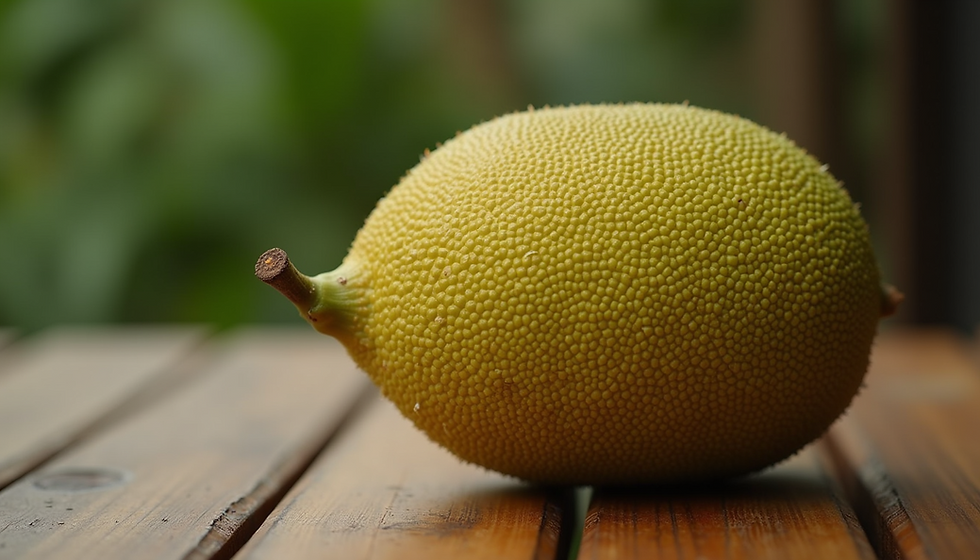Preserving Tradition: Breadfruit Farming in Portland, Jamaica
- Portland JAS
- Jul 15
- 4 min read
In the lush hills of Portland, Jamaica, a unique agricultural tradition thrives. Breadfruit farming is not just a means of sustenance; it is a way of life for many families in this vibrant community. The breadfruit tree, with its large, green leaves and round, spiky fruits, has been a staple in Jamaican culture for generations. This blog post explores the significance of breadfruit farming in Portland, the methods used by local farmers, and the challenges they face in preserving this important tradition.
The Cultural Significance of Breadfruit
Breadfruit holds a special place in Jamaican culture. It is more than just food; it represents heritage and community. Traditionally, breadfruit is used in various dishes, from savory to sweet. It can be roasted, boiled, or fried, making it a versatile ingredient in many meals.
Families often gather to harvest breadfruit, turning the task into a communal event. This practice strengthens bonds among family members and neighbors. The act of sharing food, stories, and laughter during these gatherings reinforces the cultural fabric of the community.
The Breadfruit Tree: A Resilient Crop
The breadfruit tree is known for its resilience. It can thrive in poor soil and withstand harsh weather conditions. This makes it an ideal crop for farmers in Portland, where the climate can be unpredictable.
Farmers appreciate the tree's ability to produce fruit year-round. A single tree can yield hundreds of fruits annually, providing a steady food source for families. This reliability is crucial, especially in times of economic uncertainty.
Farming Techniques in Portland
Local farmers in Portland employ various techniques to cultivate breadfruit. Many use traditional methods passed down through generations. These methods emphasize sustainability and respect for the land.
Planting and Care
Farmers typically plant breadfruit trees in well-drained soil, ensuring they receive plenty of sunlight. They often use organic fertilizers, such as compost, to nourish the trees. This practice not only supports healthy growth but also protects the environment.
Regular pruning is essential to maintain the tree's health. Farmers remove dead or diseased branches to encourage new growth. This hands-on approach reflects their deep connection to the land and their commitment to sustainable farming.
Harvesting
Harvesting breadfruit is a labor-intensive process. Farmers climb the trees to pick the ripe fruits, which can weigh up to five pounds each. This requires skill and caution, as the fruits grow high above the ground.
Once harvested, the breadfruit is prepared for sale or personal use. Many farmers sell their produce at local markets, where it is often featured in traditional Jamaican dishes. This not only supports the local economy but also keeps the cultural heritage alive.
Challenges Facing Breadfruit Farmers
Despite the many benefits of breadfruit farming, local farmers face several challenges. Climate change poses a significant threat, as unpredictable weather patterns can affect crop yields. Droughts and heavy rains can damage the trees and reduce the quantity of fruit produced.
Additionally, younger generations are increasingly moving to urban areas for better job opportunities. This migration can lead to a decline in traditional farming practices. Many young people are unaware of the skills needed to cultivate breadfruit, putting the future of this tradition at risk.
The Role of Community Support
Community support is vital for the survival of breadfruit farming in Portland. Local organizations and initiatives work to educate young people about the importance of agriculture. They offer workshops and training programs to teach essential farming skills.
These efforts aim to inspire the next generation to embrace breadfruit farming. By highlighting its cultural significance and economic potential, community leaders hope to encourage young people to stay in their hometowns and continue the tradition.
The Future of Breadfruit Farming
The future of breadfruit farming in Portland looks promising, thanks to the dedication of local farmers and community support. As awareness of the nutritional benefits of breadfruit grows, there is potential for increased demand.
Innovative farming techniques, such as agroforestry, are also gaining traction. This approach combines traditional farming with modern practices, promoting biodiversity and sustainability. By integrating breadfruit trees with other crops, farmers can enhance soil health and increase overall yields.
Celebrating Breadfruit: Festivals and Events
To celebrate the cultural significance of breadfruit, Portland hosts various festivals and events throughout the year. These gatherings showcase local cuisine, music, and art, bringing the community together.
One popular event is the Breadfruit Festival, where local chefs prepare dishes featuring breadfruit. Attendees can sample everything from breadfruit fritters to breadfruit curry. This celebration not only highlights the versatility of the fruit but also fosters a sense of pride in local traditions.
Conclusion: A Legacy Worth Preserving
The tradition of breadfruit farming in Portland, Jamaica, is a testament to the resilience and creativity of its people. As farmers continue to cultivate this essential crop, they preserve not only their livelihoods but also their cultural heritage.
By supporting local farmers and embracing sustainable practices, the community can ensure that breadfruit farming remains a vibrant part of Portland's identity for generations to come. The journey of breadfruit, from tree to table, is a story of connection, resilience, and the enduring spirit of a community that values its roots.



Comments